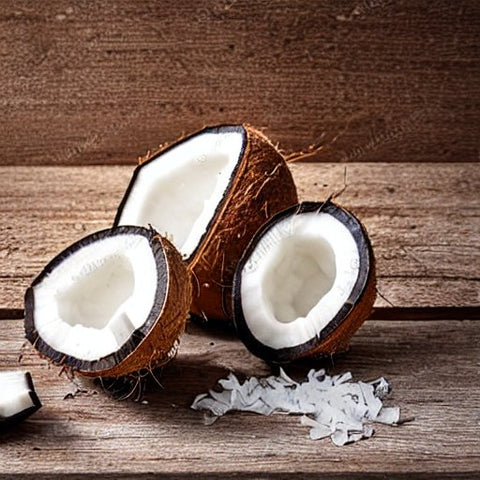There are five foods that might help alleviate bloating
It is critical that you identify the source of the issue if you are experiencing symptoms such as feeling bloated or uncomfortable. Consuming certain meals, taking in an excessive amount of air, or experiencing difficulty defecating might be the cause of this condition.
You are in luck since there are a lot of things you can do to get rid of bloating and to prevent it from coming back. However, it is highly recommended that you see your physician before making any significant lifestyle adjustments.
The discomfort of bloating is compounded by the fact that it may indicate a health issue.
By maintaining a food record, you may determine the specific foods that cause bloating in your body. Next, discuss bloating prevention strategies with your primary care physician or a registered dietitian.
Certain meals, such those that are high in fiber and fructose content, may induce bloating because they are difficult for the digestive system to break down, which in turn can result in an excess of gas.
What can alleviate gas and bloating:
- Drinking water: The best way to clear out extra salt and decrease water accumulation in the body, both of which can contribute to swelling, is to drink plenty of water.
- Consuming meals that are high in fiber: Constipation, which can contribute to bloating, can be avoided by eating foods high in fiber, such as fruits, veggies, whole cereals, and beans. Keeping the digestive system normal can help to prevent bloating.
- Avoiding gas-producing foods: Preventing foods that create gas is important because eating foods like legumes, vegetables, scallions, and fizzy beverages, as well as other foods, can cause swelling and gas in the intestinal system. It may be possible to alleviate swelling by eating fewer of these items or eliminating them altogether.
- Eating smaller, more frequent meals: Consuming big meals can place stress on the digestive system and cause swelling. Consuming smaller meals more frequently can alleviate this stress. Consuming meals that are smaller in size but more frequently can aid in keeping metabolism working normally and ward off nausea.
- Consuming a probiotic: Probiotics are helpful microorganisms that can help to maintain a healthy gut system and decrease swelling when taken in supplement form. They are also present in cultured foods like yogurt, kefir, and kimchi, in addition to the pill version that is accessible for purchase.
- Participating in regular physical activity: This can help to activate the digestive system and decrease swelling when done on a regular basis. Additionally, it can assist in relieving tension, which is a frequent contributor to stomach problems.
Coconut Water may also be used
One of the most hip drinks now available is coconut water, which is the transparent fluid that can be found inside of young, green coconuts. Because it includes potassium and magnesium, it also helps your body maintain a healthy fluid balance, in addition to hydrating you.
It may also help decrease blood pressure, but if you are already on medicine to treat high blood pressure, if you are pregnant or breastfeeding, or if you have any other medical condition, you should discuss this with your doctor first. In addition to that, it is a significant source of potassium, which is great news for the health of your heart.

Additionally, coconut water has a negligible amount of both sugar and calories and is gentle on the digestive system. You may find it on the market in a variety of forms and tastes; however, before you purchase it, you should check the ingredient list.
Selecting a kind that is pure and devoid of flavoring is essential in order to stay away from extra calories and sweets. You may also make a delicious drink by combining coconut water with juice or carbonated water and stirring the mixture.
Another benefit is that coconut water is a rich source of fiber, which helps you feel full and content for longer after consuming it. In addition to this, it is a rich source of calcium, which is essential for maintaining healthy bones and teeth.
If you're feeling under the weather and need to replenish your fluids, this is an excellent option. Coconut water may assist in rehydrating the body after vomiting and diarrhea, two common causes of dehydration.
Grapes
Grapes are a kind of berry that are tiny, juicy, and tasty. They have several qualities that may help avoid diseases and relieve troubles that are already present in the body. These teeny-tiny treasures are packed with disease-fighting antioxidants, polyphenols, and resveratrol, all of which help to protect against conditions like diabetes, cardiovascular disease, and cancer.
Antioxidants are molecules that lower oxidative stress, a factor that may contribute to the development of chronic diseases such as cancer, cardiovascular disease, and others. These compounds may also prevent the creation of free radicals in your body, which are detrimental to the cells and are the primary cause of inflammation. Free radicals are the root cause of inflammation and are toxic to the cells.
In addition, the antioxidants that may be found in grapes can assist in the prevention of cellular damage that is brought on by potentially hazardous environmental elements such as radiation, air pollution, and pesticides. Lutein, zeaxanthin, and quercetin are a few examples of the chemicals that fall under this category.
Additionally, the resveratrol that is included in red grapes is beneficial for defending your immune system and warding off cancer. It has been shown to be protective against a variety of malignancies, including breast, colon, prostate, and lung cancers.
One further benefit of eating grapes is that they contain little calories, which makes them an excellent food choice for those who are trying to cut down on their weight. However, it is essential to take them in moderation since, if consumed in an excessive quantity, they might cause a rise in the amount of sugar in your blood.
In conclusion, grapes have a high potassium content and a high fiber content, both of which are highly good to your health. While fiber may help regulate digestion, potassium can assist in decreasing blood pressure. Potassium can also help regulate blood pressure. In order to keep your cardiovascular system in good condition, the American Heart Association suggests that you consume potassium and fiber on a consistent basis.
Blueberries
Blueberries are a wonderful snack option that not only taste good but also provide a wealth of health benefits. Vitamin C, potassium, manganese, and iron are just a few of the other essential elements that may be found in abundance in these foods.
Antioxidants are chemicals that combat free radicals and slow down the aging process. These little berries are an excellent source of antioxidants, which are compounds that fight free radicals. Additionally, antioxidants may aid in the prevention of cardiovascular disease and enhance skin health by encouraging the creation of collagen.
In addition to their high antioxidant content, blueberries are also an excellent source of fiber. According to the Mayo Clinic, this vitamin helps to maintain good digestion, enhance your immune system, and lessen your chance of developing diabetes and cardiovascular disease.
Because it makes you feel fuller for longer and suppresses your appetite, this vitamin is an essential component of any program designed to help you lose weight. Including more foods that are high in fiber in your diet will assist you in achieving your weight loss goals.
If you aren't accustomed to consuming a large amount of fiber in a single meal, you should try gradually increasing the amount you consume over the course of a few weeks so that your body has time to acclimate to its presence. Be careful to drink lots of water when eating foods high in fiber, as this may help reduce the amount of gas and bloating that you experience as a result of eating these fruits.
You can purchase fresh blueberries at the majority of grocery shops; but, if you don't have access to them, you also have the option of purchasing freeze-dried, powdered, or canned varieties of the fruit instead. It is important to examine the product labels before making any purchases to ensure that the items do not include any additional sugars.
Raspberries
Raspberries are a delectable and nutritious food that may help maintain your digestive system in good shape. They include a significant amount of fiber, which helps keep bowel motions regular and lowers feelings of fullness. In addition to this, they include the kind of fiber known as prebiotic fiber, which encourages the growth of healthy bacteria in the digestive system.
They also include a high concentration of antioxidants, which are important weapons in the fight against the free radicals that may cause inflammation and cardiovascular disease. In addition to this, they are an excellent source of vitamin C, which plays an important role in maintaining healthy blood vessels.
In addition, raspberries are a wonderful source of the mineral manganese, which helps maintain healthy bones and tissues as well as controls the amount of sugar in the blood.
Because of this, they are an excellent option for persons who have diabetes. They have a low calorie count, which is another benefit for those trying to watch their weight.
Additionally, raspberries are an excellent source of fiber, which may assist in the regulation of blood sugar levels and in the facilitation of digestion. They also contain a high percentage of water, which contributes to their ability to ease bloating.
When selecting raspberries, it is imperative that you choose ones that are both fresh and completely ripe. The level of antioxidants found in them will be the greatest.
Grapefruit
Grapefruit is a kind of citrus fruit that has a taste that may vary from bittersweet to sour and is known for being tart and refreshing. It is a hybrid that was initially cultivated in the 18th century and is the product of a cross between an orange and a pomelo.
This delicious and nutritious fruit is loaded with antioxidants, vitamins, and minerals, all of which are proven to help decrease inflammation, protect against illness, and promote a healthy metabolism. In addition to that, it is an excellent source of fiber, which not only promotes digestive health but also helps you feel full for a longer period of time.
Because it is rich in vitamin C and contains lycopene and other antioxidants, it helps to maintain your immune system and protects the cells in your body from damage and aging caused by cell damage. Grapefruit is an excellent option for those who wish to lose weight since it contains antioxidants that have been shown to increase the amount of calories burned by the body.
In addition to this, it has been shown to reduce the risk of developing calcium oxalate kidney stones by preventing the mineral from accumulating in the kidneys and instead excreting it. By controlling your blood sugar levels and enhancing your tolerance to glucose, it may also lower the likelihood that you may develop type 2 diabetes in the future.
Grapefruit may have an effect on how some drugs work, which is something more to keep in mind about this fruit. Because it has the potential to raise blood pressure, those who are already taking medicine to lower their blood pressure or who have potassium levels that are low should avoid consuming it.
You may receive the health advantages of grapefruit without having to consume the fruit in its complete form by making grapefruit juice. Because it contains a lot of water and antioxidants, the juice is an excellent choice for those who are trying to lose weight. It also has a low glycemic index, which indicates that it will not produce a significant increase in the amount of sugar in your blood.
Soup with Chicken and Noodles
Clearing nasal congestion, reducing bloating, and improving your general health may all be accomplished with the aid of a steaming cup of chicken noodle soup. It is simple to prepare and digest, and it contains a wealth of nutrients that are beneficial to the immune system.
The steam from the soup has a modest anti-inflammatory impact, which may help soothe sore throats and promote circulation by relaxing blood vessels. In addition, the chicken broth has a lot of electrolytes, which are substances that may help you stay hydrated. This is particularly helpful if you are sick with a cold or the flu.
Additionally, it has a good amount of tryptophan, which stimulates the production of serotonin in the body and lifts one's mood. In addition to this, it has a high protein content, which is essential for maintaining a strong immune system.
This hearty soup has extra carbohydrates, which may make your body feel fuller after eating it. This is another advantage of eating this soup. Carbohydrates are the fuel that your body requires in order to create muscle and maintain its energy levels.
In addition, the noodles have a high fiber content, which makes them a healthy choice for those looking to improve their digestion and avoid bloating. In addition to this, they are a wonderful source of the mineral calcium, which is essential for maintaining healthy bones.
According to registered dietitian Kimberly Alexander, persons who are following a diet that is low in sodium may also benefit from eating soup. She suggests opting for a chicken broth with a reduced salt content.
Taking the Appropriate Steps to Chew Your Food
It is possible to avoid bloating and a range of other digestive problems by chewing your meal thoroughly. Additionally, it guarantees that the body receives all of the nutrients that are being consumed by the individual.
Chewing your meal results in the production of a significant amount of saliva, which includes digestive enzymes. These enzymes contribute to the digestion process by breaking down food particles and assisting in the absorption of nutrients. If your digestion is not working properly, you may have a number of digestive issues, such as bloating, stomach discomfort, indigestion, headache, constipation, and poor energy levels.
One additional advantage of chewing your food thoroughly is that it may assist you in maintaining a healthy weight and avoiding the consumption of an excessive number of calories. By chewing your food more slowly, you may increase your awareness of how hungry or full you are, and as a result, reduce the amount of food you consume.
Before you swallow your meal, you should give it your best effort to chew it at least 32 times first. According to the opinions of several experts, this is the case since it takes fewer chews to break down meals that are soft and water-filled as opposed to foods that are hard and dry.
If you don't chew your meal sufficiently, it will take the digestive enzymes in your stomach more time to start breaking down the food they are processing since you haven't chewed it enough. According to Amy Salazar, a registered dietitian in New York City, this implies that the stomach won't have as much acid available to help with digestion, which might contribute to bloating or heartburn.
If, on the other hand, you chew your meal thoroughly and consistently, the digestive enzymes in your stomach will have just the proper quantity of acid to break down the food in the quickest and most effective manner possible. This can help prevent bloating and gas bubbles from forming in your stomach, both of which may lead to heartburn if left unchecked.
In addition, effective chewing of food may help prevent germs from entering the digestive system, which in turn lowers the probability of contracting an illness. While you chew your meal, your mouth produces saliva, which may help wash away any germs that may be present. This can also promote excellent dental health and minimize the accumulation of plaque.
In addition to these advantages, chewing your food thoroughly also has the effect of making you feel fuller after you have completed a meal. After around twenty minutes of eating, your brain will transmit a signal that tells you that you are full; thus, chewing your food slowly and carefully will help you to eat more slowly and enjoy your meal more.
Observing an Appropriate Time Gap Between Supper and Going to Bed
It is recommended by many people who are interested in health that you allow at least two hours to pass between the time you eat supper and when you go to bed so that your body has time to digest the food before you go to sleep. It is also thought that this may assist to minimize your chance of developing cardiovascular disease as well as having a stroke.
The fact that it is not too difficult to carry out is definitely a plus. The only thing left to do is check if your calendar is flexible enough to accommodate it!
In most cases, supper should be had no later than seven o'clock in the evening, and there should be a gap of at least two hours between dinner and going to bed.
You will be able to obtain a good night's sleep and reduce the likelihood of experiencing bloating if you follow these instructions. Additionally, this will guarantee that the systolic measurement of your blood pressure is accurate when you wake up in the morning.
You should also avoid ingesting anything that is particularly high in caffeine in the hours leading up to bedtime. It is thought that caffeine might interfere with the brain's natural capacity to relax, which would make it more difficult for a person to go to sleep after consuming it.
If you're attempting to obtain a decent night's sleep, the most vital piece of advice for you to keep in mind is probably what was just spoken. It may be difficult to stick to, but the most effective method to accomplish it is to ensure that you have a substantial meal and a suitable interval of at least two hours before you go to sleep. This will help you get the most out of your sleep.
Taking in Large Quantities of Water
Making sure you get enough water in your system every day is one of the most effective measures you can take to avoid experiencing bloating. Not only does drinking water help keep your body hydrated, but it also makes digestion easier by speeding up the pace at which bowel motions occur and removing any surplus fluids that may have built up in your body.
It is essential to comprehend that failing to consume an adequate amount of water might result in dehydration, which, in turn, can trigger a wide range of adverse health effects. In the event that you are not consuming a enough amount of water, it is critical that you make an appointment with a medical professional in order to determine what your specific requirements are and how much water you need consume in order to fulfill them.
It is recommended by the Institute of Medicine that individuals consume at least eight glasses of water each day, each containing eight ounces. However, you may need more water if you are highly active or if it is a very hot day. If you are worried about drinking too much, it is best to stick to liquids that do not contain calories, are low in sugar, and are readily absorbed by the body.
Increasing the amount of fiber in your diet is another strategy that might help reduce bloating. Fiber is a naturally occurring component that travels through the digestive system at a more leisurely pace than other substances. As a result, it may facilitate more frequent bowel movements and lessen the amount of gas that is produced.
The natural fiber found in fruits and vegetables is a good source, and may be helpful in reducing, bloating. They have a high percentage of water content, in addition to several vitamins and minerals. Oranges, cucumbers, grapefruit, and tomatoes are some examples of fruits and vegetables that have a high proportion of water to their overall weight.
It is also a good idea to drink a lot of water with lemon in it since lemon water is an effective diuretic and may assist you in cleaning up your system. Coconut water is another excellent choice for alleviating bloating since it is rich in potassium and electrolytes, all of which contribute to regular hydration levels in the body and help keep you from feeling dehydrated.
In addition to maintaining a healthy fluid intake, it is essential to abstain from consuming meals that are rich in sugar and salt content. Your body may retain a lot of water as a result of them, which may subsequently produce bloating and other uncomfortable side effects. Choose fresh fruits and vegetables that are low in salt, such as cucumbers and tomatoes, and avoid foods that are sweetened. This will help you avoid this problem.
Taking in Air
Bloating is a genuine condition, and it's common knowledge that dealing with it may be a source of discomfort. The upbeat news is that you are able to take preventative measures to fight against it. In addition to increasing the amount of healthy foods you consume and water you drink, you should also pay special attention to the frequency and consistency of your bowel movements. Because of this, you may be able to avoid making that dreaded trip to the restroom. The important thing is to have everything in order as quickly as you can. You should also be aware of the fact that if you are experiencing significant stomach discomfort or constipation, you may need some medical aid to get the kinks out of your system. If this is the case, you should be informed of this fact.
























































Leave a comment